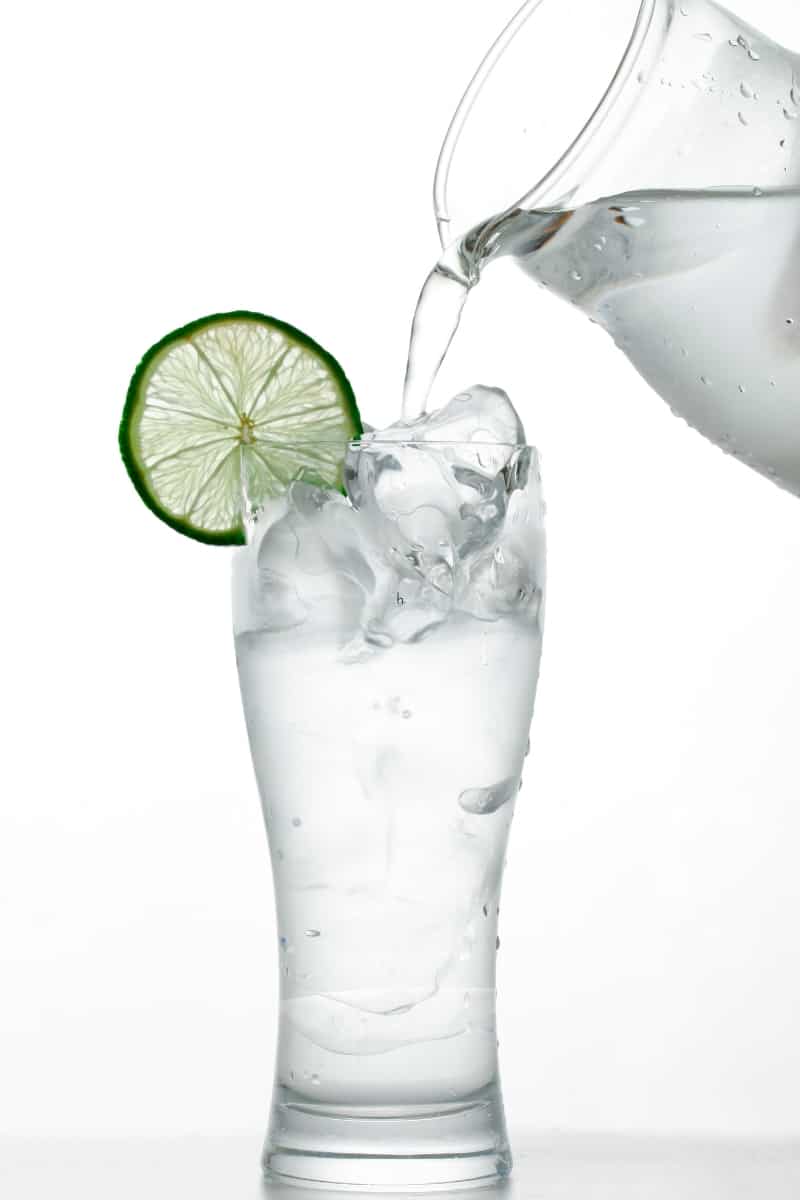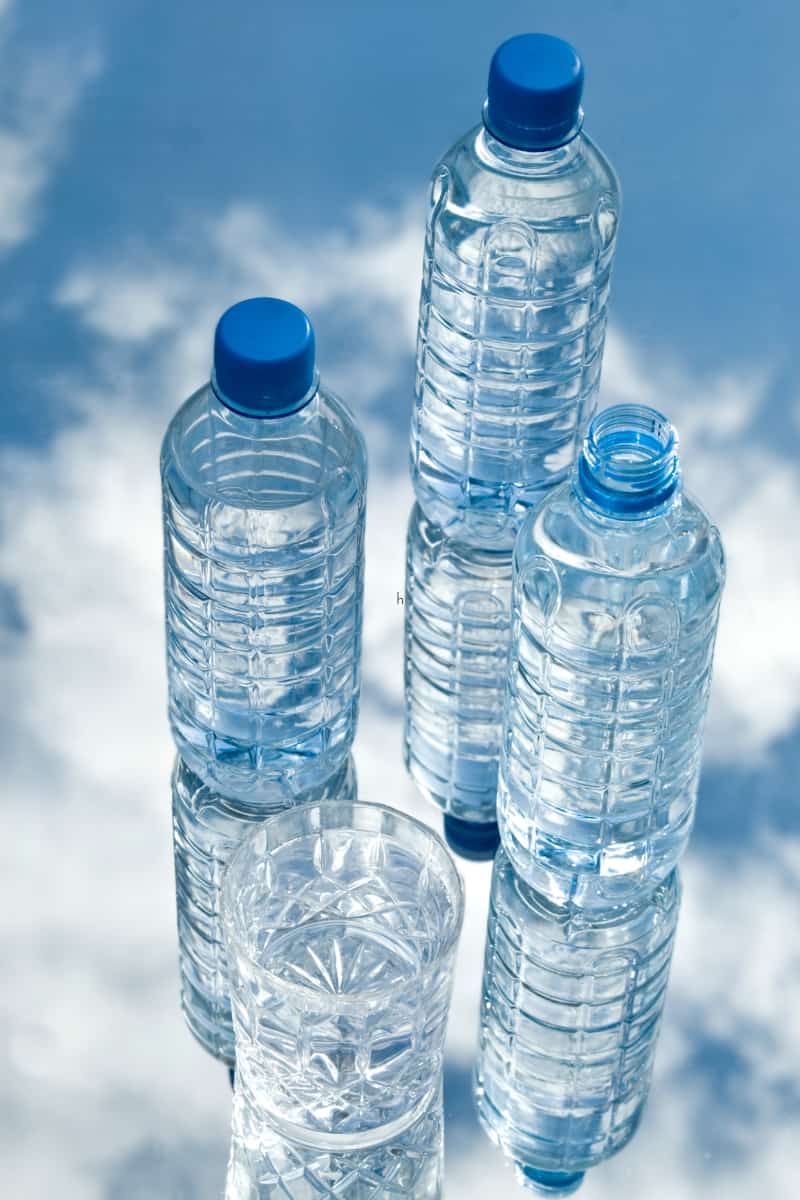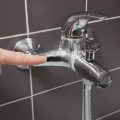If you grew up in the United States, you probably had access to clean water and drank tap water without even thinking about it since it’s generally safe to do so. But what about when traveling to France? Drinking the tap water is completely safe in many areas of the world, but can you drink tap water in France?
Luckily, France is one of the countries where tap water is commonly used for drinking, but many people wonder if it is completely safe to consume or if they should opt for bottled mineral water instead. Have no fear, though. You can drink tap water in France without issue and it’s one of the easiest ways to stay hydrated.
France has strict regulations regarding the quality of tap water. The water supply is regularly tested to ensure that it meets the highest standards of quality and safety. In fact, tap water in France is considered to be of a higher quality than bottled water. This means that there is no need to buy bottled water, and visitors can drink Paris tap water without any concerns.
Tap water quality in France
France and all of its major cities have safe tap water and it’s called eau du robinet. The French authorities inspect and measure the public service the most, making it the most studied and controlled service in the country. According to WHO data, 99% of French cities have clean and safe drinking water.
Water testing is undertaken by regional health authorities and they look at the quality of tap water at the level of individual communes. The results of these tests are published and made available to the public.
However, there are a few cities where contaminated water may exist, and it is always recommended to check the latest information about the quality of tap water in the area. You can view the public data via this link.
It is also important to note that the taste of tap water in France can vary depending on the region. Some areas have harder water than others, which can affect the taste and the appearance of the water. Paris is known for its hard water, which can affect your skin and hair, not to mention appliances.
Out where I live in the Loire Valley, the water is quite hard as well and it makes going to the hair salon a bit of a pain.
When you’re out at a French restaurant, you can always ask for free tap water and don’t have to pay for expensive bottled water. Just ask for une carafe d’eau and you’ll be given a bottle of water from the tap. It’s not a faux pas to ask for this.
You’ll also see public fountains you can drink from that don’t pose a health risk.
Overall, tap water quality in France is safe to drink, and visitors and French people alike can enjoy a refreshing glass of water without any worries.
Regulations governing tap water
Tap water in France is strictly regulated to ensure its safety for human consumption. The French government has a rigorous system in place for testing and monitoring tap water quality to ensure that it is safe to drink. The Ministry of Health is responsible for setting the standards for water quality and water systems, and the Regional Health Agencies (ARS) are responsible for implementing them.
The regulations governing tap water in France are based on European Union (EU) directives. The EU Drinking Water Directive (98/83/EC) sets out the minimum quality standards for drinking water in the European Union. The French government has implemented these standards and has also set additional requirements to ensure the safety of tap water in the country.
The French regulations require that tap water should be free from harmful microorganisms, such as bacteria, viruses, and parasites. The regulations also set limits for the concentration of various chemical substances, including pesticides, heavy metals, and nitrates. The maximum acceptable levels for these substances are set at levels that are considered safe for human consumption.
In addition to setting quality standards, the French government also requires that water suppliers regularly test the quality of tap water to make sure it complies with international standards. The suppliers are required to provide information about the quality of tap water to consumers.
The Regional Health Agencies (ARS) publish annual reports on the quality of tap water in each commune. These reports include information on the source of the water, the treatment process, and the results of water quality tests.
Overall, the regulations governing tap water in France are designed to ensure that tap water is safe for human consumption. The French government has implemented strict standards and monitoring requirements to ensure that the quality of tap water is of the highest standard. Consumers can be confident that tap water in France is safe to drink.
Regional differences in tap water
Although tap water is safe to drink in the majority of France, there are regional differences in its taste and quality. Here are some of the regional differences in tap water in France:
Hardness
The hardness of tap water varies across different regions. Hard water contains high levels of minerals, such as calcium and magnesium, which can make the water taste different and leave limescale in the pipes. Paris is known for its hard water.
Hard water affects the taste and may cause limescale buildup in appliances. In these cases, some people choose to use filters to improve the taste and quality of their tap water. However, this is a matter of personal preference, and it is not necessary for health reasons.
Chlorine
Chlorine is added to tap water in France to kill bacteria and viruses. However, some people find that the chlorine gives the water a taste and odor. The amount of chlorine in tap water varies across France. If it’s bothersome, it’s recommended that you leave a bottle of tap water in the refrigerated uncovered to help the chlorine taste dissipate over several hours.
Fluoride
Fluoride is added to tap water in France to prevent tooth decay. However, not all areas of France add fluoride to their tap water. The decision to add fluoride is made by the local authorities, and it is not mandatory. The levels of fluoride in tap water range from 0.1 to 1.5 milligrams per liter.
Pesticides
Pesticides are a concern in some areas of France, particularly in rural areas where they are used in agriculture. If you are concerned about pesticides in your tap water, you can install a water filter or buy bottled water.
Health implications of drinking tap water
Tap water in France is generally safe to drink, but some regions may have different water quality standards. The French government has strict regulations in place to ensure that tap water is safe for consumption. The water is tested regularly to ensure that it meets the required standards for human consumption.
However, it is important to note that tap water may contain some impurities, such as chlorine, fluoride, and other minerals. These impurities are added to the water to kill bacteria and improve its taste. While these additives are generally safe in small amounts, they may cause health problems if consumed in high doses.
For example, excessive fluoride intake can cause dental fluorosis, which is a condition that affects the teeth. This condition can cause white spots or brown stains on the teeth, and in severe cases, it can cause the teeth to become brittle and break. Therefore, it is important to monitor the amount of fluoride that is consumed from tap water.
Another concern is the presence of lead in tap water. Lead can enter the water supply through old pipes or plumbing fixtures. Exposure to lead can cause health problems, especially in children. It can affect their brain development and cause learning and behavioral problems. Therefore, it is important to test the water for lead and take appropriate measures if lead is detected.
Environmental impact of bottled vs. tap water
When it comes to the environmental impact, tap water is the clear winner over bottled water. According to a study conducted by the Barcelona Institute for Global Health (ISGlobal), the environmental impact of bottled water is up to 3,500 times greater than tap water.
The study found that the bottling, transportation, and disposal of bottles of water after use result in a wide range of environmental impacts, including greenhouse gas emissions, energy consumption, and plastic waste.
In contrast, tap water has a much lower environmental impact. The production and distribution of tap water requires less energy and resources than bottled water. In addition, tap water is typically treated and tested to ensure its safety, while bottled water is not subject to the same level of regulation.
Another environmental concern with bottled water is the plastic waste it generates. Plastic bottles take hundreds of years to decompose, and many end up in landfills or the ocean, where they can harm wildlife and contribute to pollution. In contrast, tap water is delivered through pipes and does not generate plastic waste.
Overall, the environmental impact of bottled water is significantly higher than tap water. By choosing to drink tap water, individuals can reduce their environmental footprint and help protect the planet.
How to ensure safe drinking water
If you’d like to take extra precautions for whatever reason, here are some tips to help you ensure safe drinking water in France:
1. Boil the water
Boiling tap water is the most effective way to kill any bacteria or viruses that may be present and boost the quality of water you consume. To do this, simply bring the water to a rolling boil for at least one minute. After the water has boiled, let it cool down before drinking.
2. Use a water filter
Another way to ensure safe drinking water is to use a water filter. There are many different types of water filters available on the market, including activated carbon filters, reverse osmosis filters, and ceramic filters. Make sure to choose a filter that is specifically designed to remove the contaminants that are present in the tap water in your area.
3. Buy bottled water
If you’re not comfortable drinking French tap water, you can always buy bottled water from a French grocery store. Many stores and supermarkets sell bottled water, both still and sparkling, from various brands. Look for labels like “eau minérale” (mineral water) or “eau de source” (spring water) for high-quality options.
Bottled water is widely available in France. However, keep in mind that water bottles can be expensive, and it’s not the most environmentally friendly option.
Another eco-friendly alternative to bottled water for when you’re on the go is to carry a reusable water bottle and fill it up before you leave for the day.
4. Let it run
Let the water run for several seconds before filling your glass or pots for cooking. That way, any stagnant water that’s collecting in the pipes will make its way out and not into your food. This is especially important if you’ve been away for more than a couple of days.
5. Check the water quality report
In France, water quality reports are available online for each water distribution system. These reports provide information on the quality of the tap water in your area, including any contaminants that may be present. Make sure to check the water quality report for your area to ensure that the tap water is safe to drink.
By following these tips, you can ensure that the tap water you’re drinking in France is safe and free from harmful contaminants.
6. Ask the locals
When in doubt about the quality of tap water in a specific area, don’t hesitate to ask the locals. The residents of a region are likely to be familiar with the water quality and can provide insights based on their experiences.
In most cases, you will find that the locals have been drinking the tap water for years without any issues, which can be a reassuring sign for visitors.
Benefits of drinking tap water in France
Drinking tap water in France not only saves you money since buying bottled water is expensive, but it also helps reduce plastic waste and its environmental impact. The country has an efficient waste management system, but limiting plastic usage is always a positive step towards a more sustainable future.
Moreover, French tap water is generally mineral-rich, especially in areas with natural springs. These minerals can add a unique flavor to the water, making it a refreshing and healthy choice at home and when eating out.
***
In summary, tap water in France is generally safe to drink. The country has strict regulations governing the quality of tap water, and it is routinely tested to ensure that it meets these standards. While there may be some variations in water quality depending on the region, overall, tap water in France is considered safe for consumption.
When you visit France, go right ahead and quench your thirst straight from the tap. It’s a perfectly normal thing to do and drinking lots o fresh water will keep you refreshed and hydrated throughout your journey!








